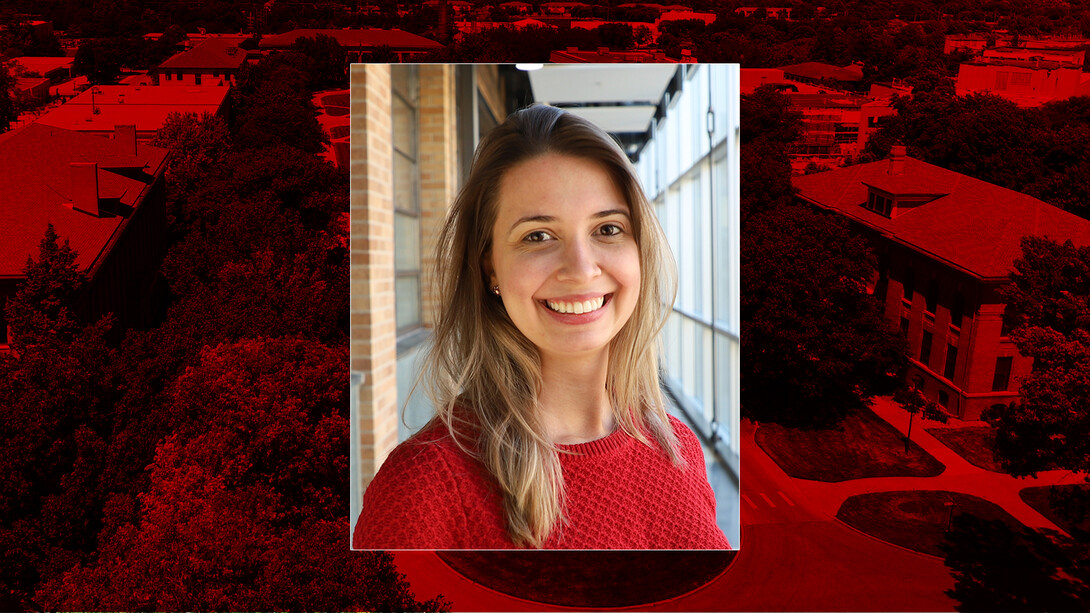
Hometown: Sao Paulo, Brazil
Major: Agronomy, Doctorate Student
Anticipated Date of Graduation: Spring 2023
Why did you decide to come to the University of Nebraska-Lincoln?
After completing my master's degree in Horticultural Sciences at the University of Florida in fall 2018, I had the opportunity to meet my current advisor, Dr. Andrea Basche, at the American Society of Agronomy Annual Meeting. During that meeting, I got to know more about an open position in the Resilient Cropping Systems Lab to work on a soil health-related project involving farmers, UNL extension educators as well as partners across the state with the USDA Natural Resources Conservation Service. Not only the interest in this project but also recommendations from friends regarding the quality of graduate programs and ag-related research at UNL were critical to my decision to come to the University of Nebraska-Lincoln. At UNL, I have a research project focuses on alternative agricultural management practices to improve soil health and ecosystem services.
What is your favorite thing about University of Nebraska-Lincoln?
The institution’s goal in graduating students who understand the power of inclusiveness confirmed my choice for the doctorate degree at UNL. So one my favorite things about UNL is its diversity and inclusion initiatives.
How has diversity and inclusive excellence played a role in your CASNR experience?
The opportunity of attending college, as the second in my family to pursue high education, represented a breakthrough in my career and role as a woman in agriculture. I began to see academia as a way to promote diversity and inclusive excellence. The experience of collaborating in different groups has shaped me as a researcher and affirmed my ideal to promote equitable, healthy, profitable and resilient food systems. As an international student in the U.S., I have prioritized a deep and lasting commitment to service and leadership opportunities in my university and local community. I have been delighted to assist international students with communication constraints, support families with socioeconomic hardships and serve as a mentor and tutor of young, talented students. My recent involvement in discussions and network opportunities promoted by UNL CASNR has strengthened my communication skills and solidified my goal in advocating for increased diversity, inclusive excellence and leadership opportunities in academia.
What is your favorite class you have taken so far and why?
Since I started grad school, I found that I got the most out of my classes when they helped me advance my research, particularly if they had projects associated with them. Working with soil health requires analysis of many properties in terms of physical, chemical and biological indicators. My favorite class I have taken at UNL is STAT 873: Applied Multivariate Methods. This class taught me how to analyze multiple soil properties simultaneously. Applying that to my research, I have been able to describe variation and association of multiple soil properties in an easily understood manner that gives insight into the various dimensions of soil health.
What are your plans post-graduation?
I have built ties with researchers of vegetable production, postharvest, weed sciences, soil water and nutrient management through continued interaction with faculty and students at the University of Sao Paulo, University of Florida, University of Georgia and University of Nebraska. My future career plan is to transition to a tenure-track position in a university to strengthen collaborations, foster innovation in agriculture and apply my expertise to deal with challenges that promote sustainable farming systems. As a researcher, I will practice the philosophy of “diversity stimulates global solutions locally” through university-industry partnerships that will place different voices, ideas and perspectives on the table.
What’s life like outside of school?
Life outside school is lots of fun! Work-life balance is very important and I really enjoy being active in the department’s activities, traveling with family and friends, going to Husker games and discovering new places in Nebraska.







